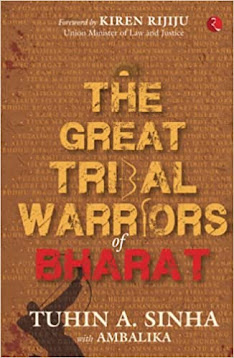The person I am today is because of my parent's hard work. If I didn't have parents like them to give birth to me, l would never be able to stand in this world.
Wednesday, 14 December 2022
What makes us who we are - Monika Singh Pundir
Monday, 12 December 2022
What Makes Us Who We Are - Tenzin Nyesel

Photo courtesy Cheme Dolma Palden
https://milaap.org/fundraisers/support-pestalozzi-children-village-society
The first people that came to mind after hearing about that topic are my parents, who have done so much for me. The way I'm able to live, read and write is all because of my parents who've invited me into this world and have done so much hard work for me to live a good life.
Then my second thought was my teachers who've taught me not only studies but also good manners and habits.
The last thought was that my friends have always supported me and always been there for me at whatever stage.
These all are people in my life who've made me who I am right now, for which I'm very thankful and grateful.
Pestalozzi Childrens Village, India
Sunday, 11 December 2022
Kurseong: The land of white orchid - Rishona Chopra
Helen Lepcha belonged to the indigenous Lepcha community, an ethnic group scattered across Sikkim, the Darjeeling Hills, the southwestern parts of Bhutan and the Ilam District of Nepal. Born on 14 January 1902, in Sangmu Village (South Sikkim) to Mr and Mrs Achung Lepcha, Helen was the third of seven children.
Her family moved to Kurseong shortly after she was born. Surrounded by lush green tea estates with well-pruned bushes, the towns of Kurseong and Darjeeling started witnessing the arrival of education and infrastructural development in the early 19th century. This created ample job opportunities compared to the then princely state of Sikkim, leading Helen's father to move to Kurseong.
Kurseong is a beautiful town known as The Land Of White Orchids. It was initially called "Karsan Rup", which means The Land Of White Orchids. Even Mark Twain spent some time here. However, Kurseong is most popularly associated with Netaji Subhash Chandra Bose, who was imprisoned in a bungalow here by the British.
Helen Lipcha, also known as Savitri Devi, helped Netaji Boe escape and supported Mahatma Gandhi in the Non-Cooperation movement.
I have learnt and heard of many fighters and towns but never of Kurseong. I never even knew there was a girl named Helen Lepcha who played such an essential role in history. I genuinely salute these unsung heroes who were brave enough to risk their lives yet not be famous.
The one question I would like to ask the author is - Does the story of Helen Lipcha inspire you or relate to your life in any way?
Rishona Chopra
Grade VI
Gyanshree School
Reflections Since 2021
-
▼
2025
(36)
- ▼ April 2025 (4)
- ► March 2025 (12)
- ► February 2025 (9)
- ► January 2025 (11)
-
►
2024
(268)
- ► December 2024 (18)
- ► November 2024 (14)
- ► October 2024 (19)
- ► September 2024 (16)
- ► August 2024 (22)
- ► April 2024 (18)
- ► March 2024 (12)
- ► February 2024 (37)
- ► January 2024 (25)
-
►
2023
(372)
- ► December 2023 (35)
- ► November 2023 (26)
- ► October 2023 (33)
- ► September 2023 (21)
- ► August 2023 (33)
- ► April 2023 (48)
- ► March 2023 (24)
- ► February 2023 (20)
- ► January 2023 (39)
-
►
2022
(664)
- ► December 2022 (41)
- ► November 2022 (44)
- ► October 2022 (61)
- ► September 2022 (21)
- ► August 2022 (56)
- ► April 2022 (34)
- ► March 2022 (53)
- ► February 2022 (98)
- ► January 2022 (94)
-
►
2021
(168)
- ► December 2021 (41)
- ► November 2021 (24)
- ► October 2021 (15)
- ► September 2021 (14)
- ► August 2021 (12)
- ► April 2021 (8)
- ► March 2021 (9)


